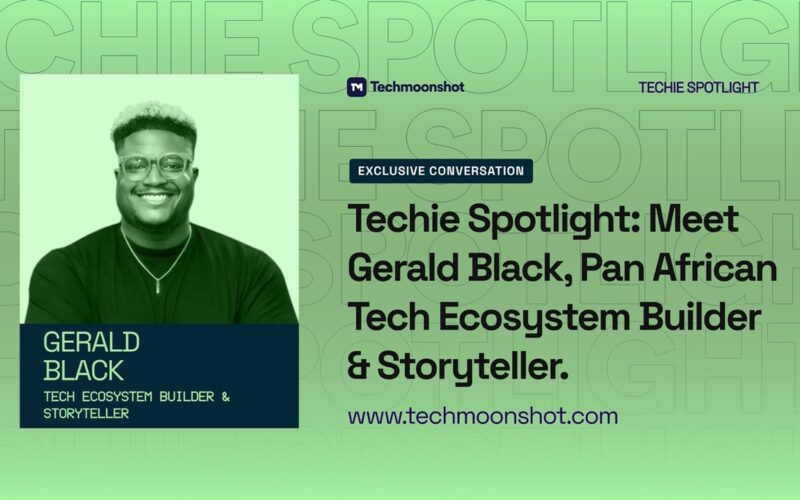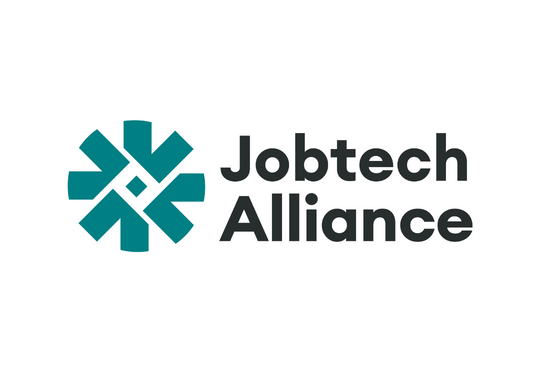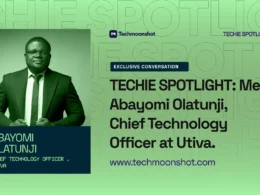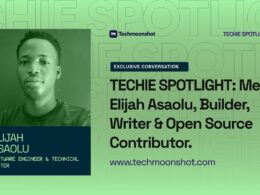Gerald Black is a dynamic Africa Tech Ecosystem Builder and Storyteller with over 10.8K followers on Instagram. As an ECOWAS Youth Ambassador, Gerald is dedicated to amplifying the voices of African innovators and entrepreneurs. With a passion for nurturing the tech ecosystem across the continent, he hosts the influential @backendseries, where he delves into the stories behind successful African startups and tech leaders.
Through Xconnect Africa, Gerald bridges the gap between tech enthusiasts and industry experts, fostering a collaborative environment that drives innovation and growth. Additionally, his involvement with @blackopsafrica highlights his commitment to building strong, supportive communities that empower emerging talent and create opportunities for development.
Gerald’s work extends beyond storytelling; he actively participates in shaping the future of Africa’s tech landscape by promoting digital inclusion, advocating for policy changes, and supporting initiatives that encourage sustainable growth. Follow Gerald to stay inspired by his journey in transforming the African tech scene and empowering the next generation of leaders.
In this exclusive conversation, Gerald Black delves into the motivations behind his decision to champion the storytelling of African tech. He shares his vision for amplifying the narratives of innovators and entrepreneurs across the continent, emphasizing the importance of highlighting these stories to inspire others and showcase the rich diversity of technological advancements in Africa.
Can we get to know you?
My name is Gerald Black. I’m a partner at Black Ops, a community dedicated to supporting tech operators across the continent. We focus on empowering operators in their efforts to build exceptional companies throughout Africa. In addition to my role at Black Ops, I am also a tech ecosystem builder and a tech storyteller.
Tea or coffee? What gets you going in the morning?
Hot chocolate, you didn’t mention my preference 😄.
Can you share your journey in tech so far?
My tech journey began in 2016 with the launch of my first startup, IFIX, a platform akin to Uber for artisans, connecting users with handymen for home and office maintenance. Despite its initial promise, IFIX eventually failed, leading me to pivot in 2018 to Park It. Park It was an auto tech company offering vehicle care services in Lagos and Abuja. We were acquired by Fixit45, a sister company of Cars45 specializing in vehicle maintenance and repairs, in 2021.
Following the acquisition, I joined Black Ops in August 2022 as a community manager, overseeing day-to-day operations and events. Simultaneously, I worked with Anchor, a YC-backed company providing banking services, until December 2023. My experience revealed a gap in information about alternative tech destinations in Africa, beyond the usual Big Four—Nigeria, South Africa, Kenya, and Egypt.
In January 2024, I launched XConnect to address this gap, focusing on strategic connections and market insights for emerging tech hubs. I visited the Benin Republic to build relationships and create valuable content. XConnect aims to expand beyond Benin Republic, exploring markets like Sierra Leone, Uganda, Côte d’Ivoire, and Botswana to provide startups with essential insights and connections for their growth.
As an exited founder, can you walk us through the process of building and eventually exiting your startup?
When we started the company, we knew that making a major disruption in vehicle care services would require more than just one player or a significant amount of capital. So, we focused on a more manageable segment: vehicle care services like detailing. We decided to dive deeply into this niche, making a substantial impact by even manufacturing our own products for these services.
As our success grew, we naturally attracted interest from potential partners. Initially bootstrapped, we began bringing in investors and partners, including Cars45 and a few angel investors. Our focus on customer satisfaction and strategic partnerships helped us position ourselves attractively in the market.
We aimed to be a key player in a larger ecosystem, similar to how Shola from Paystack described building “the Stripe of Africa.” It wasn’t a surprise when acquisition conversations started; it was a goal we had anticipated. We ensured everything was in order, from audited financial statements to comprehensive due diligence. When the acquisition offer came, it moved quickly, and we were seamlessly integrated into the acquiring company.
How would you describe the current state of tech in Africa?
Right now, I would describe the current state of Africa as undergoing a “reboot.” We’ve largely adopted Silicon Valley’s approach, which emphasizes rapid growth with the expectation that this growth will eventually be monetized. However, this model often leads to unsustainable unit economics where spending on growth outpaces revenue generation.
In markets like Nigeria, where we have a population of over 200 million, the reality is that a significant portion of the population is in survival mode, with limited purchasing power. Thus, despite a large potential market, the actual number of people who can afford and are willing to pay for services is much smaller.
This shift is forcing founders to focus more on unit economics and address core problems that meet basic needs and improve living standards. Success now depends on solving essential problems while ensuring that business models are cash flow positive from the outset. In this new landscape, it’s crucial to balance scalability with financial sustainability to build successful ventures on the continent. That’s my perspective on the tech scene in Africa today.
Can you share a success story where your efforts significantly impacted the tech community in Africa?
Since launching my first startup, which employed over 50 people directly, my focus has been on creating sustainable jobs and delivering returns on investment. These objectives have been central to my efforts throughout my career.
At Black Ops, my role has been instrumental in providing opportunities for tech operators. We’ve facilitated numerous connections between tech talent and major companies, including working closely with Founders Factory Africa. Through this partnership, we’ve assisted their portfolio companies in hiring and have seen many people secure jobs through our network.
Recently, my tech storytelling project has generated significant interest. After our recent engagement in Benin Republic, we’ve organized a business tour to the country later this month. This initiative, in collaboration with our travel partner City Square, will bring delegates from the Nigerian startup ecosystem to explore collaboration opportunities and meet key stakeholders in Benin Republic.
Overall, my impact has been felt across the ecosystem through job creation, investment returns, fostering collaboration, and connecting startups with opportunities for growth and investment.
What are some of the biggest challenges facing African tech entrepreneurs today, and how can they be addressed?
One of the biggest challenges we face is data. Accurate and timely data is crucial for planning, predicting, and decision-making. Unfortunately, our efforts in data collection and processing to extract actionable insights have been lacking. This gap makes it difficult to make informed decisions and effectively strategize.
While support has become more accessible through incubators, accelerators, and tech ecosystem builders, emerging markets still face significant challenges in this area. Access to capital remains another major challenge. However, I didn’t list capital as the primary issue because having the right data can position you to attract investment. For instance, at Park It, we initially bootstrapped and gained recognition through our work. Investors reached out to us once we demonstrated traction and capability.
A practical example of the data issue is the Nigeria Bureau of Statistics. If you need information like the number of cars in Nigeria, you might find outdated data from 2019, with no updates available for years. Accurate and current data is essential for building better strategies and solutions, yet it’s often not accessible.
What opportunities do you currently believe are currently explored in the African tech ecosystem?
When you look at Africa, it’s clear that many issues remain unresolved. For instance, as of 2024, power supply remains a persistent problem in Nigeria. Similarly, challenges with internet access and other basic services are still prevalent.
These issues represent opportunities. There are what are known as “institutional voids”—gaps within the ecosystem that need addressing. The entrepreneurs who can identify these voids and develop solutions will find significant success.
Take Dangote, for example. Building the first refinery in an oil-producing country like Nigeria is a monumental achievement. The very absence of such infrastructure highlighted a critical gap, and addressing it set him on a path to immense success.
The key is to identify the pain points that resonate with you and work passionately to address them. By tackling these challenges head-on, you position yourself for success and make a meaningful impact.
What personal qualities or skills do you believe have been most instrumental in your success?
One of my key strengths is my ability to identify opportunities. This skill has been fundamental to everything I’ve done. Recognizing gaps and breakages in everyday life is a unique gift. Many people go about their routines without noticing these issues, but those who do can turn them into opportunities.
For example, Ndaya, the founder of Eden, started the company because he was frustrated with the inconvenience of finding home services. He wanted a solution for cleaning his apartment, getting food, and handling laundry without the hassle of searching. By identifying these pain points, he created Eden to address them.
The ability to spot and act on opportunities is a critical skill for any successful entrepreneur. It’s about seeing problems where others might not and turning those insights into valuable solutions.
How do you stay motivated and inspired in your work?
I stay motivated by constantly challenging myself to do things differently. Routine quickly leads to boredom for me, so I make it a point to push my boundaries, try new things, and tackle tougher problems.
Additionally, I’ve learned the value of taking breaks. In our culture, taking vacations or breaks isn’t always emphasized, but it’s essential for mental wellness. Even short breaks can make a big difference. For instance, if I’m feeling burnt out, I might take a week off, disconnect from work, and simply enjoy some downtime—watching Netflix or resting at home. This brief respite helps reboot my mind and energy. After a break, I often find myself refreshed and ready to dive back into work with renewed vigor. Taking breaks is crucial for maintaining long-term motivation and productivity.
How do you envision the African tech landscape evolving over the next decade?
We are beginning to recognize that Africa should be viewed as a single, integrated market. When positioning your products or services, it’s crucial to consider the entire African market rather than focusing solely on individual countries like Nigeria. This broader perspective not only helps in mitigating risks but also addresses challenges like inflation, which can significantly impact returns if your business is limited to a single market.
Expanding into new markets is increasingly important. As Jack Ma of Alibaba has emphasized, building for the Pan-African continent is essential. Developing products and services that cater to a wider African audience can significantly enhance your chances of success. By targeting multiple markets across the continent, you broaden your reach and improve your business’s resilience against localized economic fluctuations.
What’s your favorite tech gadget that you can’t live without?
My phone is absolutely indispensable to me. It’s where all my work happens—coordinating with my team, taking meetings, and even taking this call right now. I can work on the go, and honestly, I can’t imagine a day without it. It’s a gadget I truly appreciate because it allows me to be productive anywhere, anytime, and keep everything running smoothly.
If you could have dinner with any tech innovator in Africa, who would it be and why?
In this day and age, it might be controversial, but I would say Bosun Tijani. He has transitioned from being a tech executive to taking on a role as a government official.
What advice would you give to young Africans looking to make an impact in the tech industry?
If I could go back and start over, I would likely choose to work in a fast-paced, growth-stage startup environment. This exposure is invaluable because it provides essential perspectives on structure, positioning, and strategy. Many of the mistakes I made could have been avoided with earlier exposure to such environments.
A lot of successful individuals in today’s tech startup ecosystem come from growth-stage companies like Paystack or Andela. Their experience at these levels gives them a significant edge when launching their own ventures.
So, instead of rushing to be your own boss, which can sometimes stem from a desire to escape traditional employment, focus on investing in yourself. Gaining experience and developing soft skills in established companies can significantly enhance your long-term success.
Are there any upcoming projects or initiatives that you’re particularly excited about at the moment?
Right now, I’m incredibly excited about the “Discovering New Tech Destinations Across Africa” project. This initiative is very close to my heart because I can see its tangible impact. We visit emerging tech hubs, capture their stories in a documentary-style video format, and engage with local stakeholders. These stories are shared through videos, podcasts, and articles.
But it doesn’t stop there. We actively engage with the tech ecosystem in these areas. For example, during my recent trip to Benin, I hosted an event to connect with stakeholders, building personal relationships, and gathering valuable contacts. As businesses start to recognize these new markets, they’re eager to explore and test opportunities. I can leverage these connections to facilitate introductions and collaborations.
I’m particularly focused on highlighting the less prominent tech hubs, beyond the well-known Big Four markets. While there’s ample information about these major hubs, emerging markets often lack visibility. My goal is to shine a light on these areas, help founders discover new expansion opportunities, and foster meaningful collaborations. I’m really looking forward to seeing how this project evolves and the impact it will have.
what do you enjoy in your free time outside of work?
Watching movies, I enjoy watching movies in my living room till I fall asleep and then I go to sleep. That’s how I love to unwind.
What book, podcast, or resource has had the most significant impact on your professional development?
The first book I’d recommend is Jesus, CEO (now known as Jesus, Entrepreneur) by Laurie Beth Jones. It was instrumental in shaping my thought patterns and preparing me for entrepreneurship. Another influential book for me was Think Big and Kick Ass by Donald Trump and Bill Zanker. It helped me adopt a limitless mindset, encouraging me to overcome fears and navigate obstacles in my entrepreneurial journey.
For podcasts, I’d suggest The African Pre-Seed Podcast by Founders Factory Africa. It’s an enlightening and practical podcast where I’ve also had the privilege of being featured. These resources have been incredibly valuable, and I highly recommend them.
It’s a pleasure talking to you.
Thank you for doing this.












